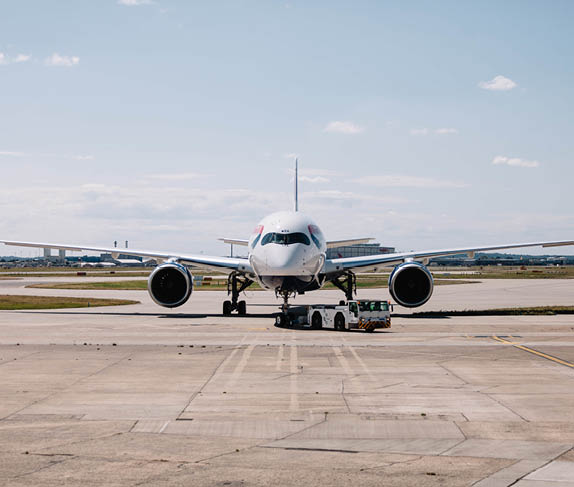A tender process for coach links between London Luton Airport and central London was a “sham” with a “pre-ordained outcome”, a losing bidder told a UK court.
Arriva The Shires (ATS), a regional subsidiary of German-owned Arriva, has accused London Luton Airport Operations (LLAO) of dominance abuse in breach of Chapter II of the UK’s Competition Act 1998. ATS had operated a service between the airport and London Victoria Railway Station for more than 30 years until the airport put the route out to tender in March this year.
It lost out to rival National Express, which now has exclusive rights to operate on the route for seven years, plus a “right of first refusal” on any new routes opened in future.
Speaking on the first day of a trial between the parties at London’s High Court, Paul Harris QC, for ATS, said LLAO had “lost sight of its special responsibilities as a dominant undertaking.”
He claimed that the tender was a “sham” in the sense that it was inevitable ATS would lose. “We were never going to succeed in this tender” as it “was not a proper, fair, transparent, and equal procedure.”
ATS also argues that there was no “objective and proportionate reason” for having a tendering process at all, and claims the airport should have allowed multiple firms to operate on the route.
In its written submissions lodged with the court, LLAO argued that the tendering process was “competitive”, and that it lacked the physical capacity to allow multiple operators access.
ATS plans to present evidence from road traffic experts, and CCTV footage from the airport, to rebut LLAO’s “quite outrageous” allegation of insufficient capacity.
“A more proportionate response is to say to others, ‘you can come in to the extent that there is capacity’,” Harris said. “That is exactly what other bus station operators do.”
ATS also said future expansion plans by LLAO will ensure that there will be “masses of capacity” for rival coach services.
Harris said the case was “very similar” to that of Purple Parking and Meteor Parking v Heathrow Airport. The High Court found that Heathrow Airport abused its dominance by forcing the valet operators to move from the forecourts of Terminals 1 and 3 to its short stay car parks, in order to introduce its own rival service.
In its written submissions, LLAO claimed that Arriva had earned a 46% profit margin on the route prior to tendering, and that its bid came a “poor third”.
The airport operations company argued it would have been a “commercial absurdity” to enter into non-exclusive agreements with one or more coach operators, as none had expressed an interest in non-exclusive access.
“This is not a case in which the dominant firm has sought to exclude competitors to its own downstream operation, or has sought to discriminate against such competitors in favour of its own downstream operation,” LLAO argued. “It has no such downstream operation.”
For there to be an abuse, the dominant firm should be active or, at the very least, intend to become active on the downstream market, LLAO further argued.
Granting exclusivity was “not suggestive, in itself, of abuse”, and no rule of law prevents a dominant company from granting exclusive contracts following a competitive tendering process.
“Even a dominant operator is entitled to make decisions as to how to allocate access to its finite infrastructure,” argued the defendant. LLAO also argues that if spare capacity existed, which it disputes, it would want to open up new routes, in particular to East London, rather than duplicate services to Victoria.
In relief, ATS is seeking an injunction ordering LLAO to allow the former to compete on the Victoria route.
The case is being heard by Mrs Justice Rose in the Chancery Division, with a time estimate of 12 to 14 days.
ATS is represented by Paul Harris QC and Ben Rayment, both of Monckton Chambers, instructed by Bond Dickinson. LLAO is represented by Tim Ward QC, also of Monckton Chambers, and Colin West, of Brick Court Chambers, instructed by SJ Berwin.

